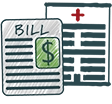Menu

CALL FOR A FREE CONSULTATION
Exceptional Legal Representation Throughout
Long Island and New York, Since 1993.

CALL FOR A FREE CONSULTATION
Exceptional Legal Representation Throughout
Long Island and New York, Since 1993.









It looks like you’re referring to QuillBot for rewriting or improving the text. Here’s a refined version:
Debt Negotiation and Settlement Attorneys – Brooklyn and Queens
Our law firm specializes in aggressively negotiating debt settlements, often achieving favorable resolutions for our clients. Settlements are typically mutually beneficial, especially when creditors recognize that the alternative may involve bankruptcy or litigation.

Clients regularly turn to the Law Office of Ronald D. Weiss, P.C. for expert representation in negotiations with banks, mortgage lenders, credit card companies, auto financing providers, landlords, tax authorities, and other creditors. Our firm significantly enhances our clients’ ability to negotiate and secure settlements due to:
Our Negotiation Process
We counsel clients on how much can be negotiated and what offers creditors are likely to accept. Throughout the process, we keep clients informed about case progress, creditor communications, and ongoing efforts to secure favorable resolutions. Once a settlement is reached, we formalize the agreement with the creditor and ensure the necessary legal documentation is prepared.
Types of Debts We Negotiate and Settle
We frequently negotiate and settle the following types of debts:
1. Credit Card Debt
Unsecured personal loans and credit card balances.
2. Tax Debt
Outstanding debts with the New York State Department of Taxation and Finance (NYS) and the Internal Revenue Service (IRS).
3. Student Loans
Settlements for both private and government-backed student loans.
4. Business Debt
Debt restructuring or resolution for individuals closing or restructuring their businesses.
5. Medical Debt
For individuals facing medical expenses that were not covered by insurance or whose coverage has lapsed.
6. Credit Repair
Correcting inaccuracies or misleading information on credit reports.
7. Non-Retention Real Estate Solutions
For distressed property owners seeking alternatives other than retaining their property. Options include:
Bankruptcy vs. Debt Settlement
While bankruptcy provides a comprehensive solution for reducing or eliminating debt, it is not always the best option. Some clients may:
Our Approach to Debt Negotiations
Our strategy includes:
Through a well-coordinated and strategic approach, we help clients achieve effective debt relief solutions that work in their best interests.

Since many of our clients come to us with multiple personal debts requiring negotiation, we establish individual files for each creditor. These files contain essential details such as payment history, negotiation records, contact information, and loan specifics. We systematically reach out to creditors through written communication and phone calls to secure mutually beneficial settlements. This structured approach allows us to track negotiation progress effectively and keep our clients informed.
Our deep expertise in bankruptcy law and litigation defense strengthens our negotiation strategy. Creditors understand that if a fair settlement cannot be reached, our clients may have legal alternatives such as bankruptcy or litigation.
Our Debt Negotiation Process
1. Client Information and Documentation
We begin with an intake meeting, where our paralegals collect relevant documentation and gather details about the client’s financial history, debts, and prior negotiations. Understanding the client’s income, expenses, budget, and financial constraints helps us determine viable settlement options. The client’s ability to contribute to a settlement—whether through lump-sum payments, installments, or a combination—plays a critical role in structuring negotiations.
2. Comprehensive Searches
We conduct thorough asset, debt, and legal searches to gain a complete picture of the client’s financial standing. These searches include:
3. Contacting the Creditor
A crucial step in debt negotiation is determining the appropriate creditor representative to negotiate with. Since debts may be assigned or sold to collection agencies, servicers, or legal representatives, we identify the correct party authorized to settle the debt.
Once identified, we draft a formal letter to the creditor outlining:
This approach encourages creditors to engage in meaningful negotiations.
4. Negotiation and Multiple Offers
Debt negotiations typically involve multiple rounds of offers and counteroffers. Our strategy includes:
If an initial offer is declined, waiting and re-engaging later may lead to a better settlement outcome.
5. Finalizing the Settlement Agreement
Once a settlement is reached, we ensure a formal agreement is executed to protect our client’s rights. Clients must comply with the settlement terms to fully resolve their debts.
Upon completion, we secure the necessary legal documentation, such as:
Through our strategic and well-structured approach, we help clients achieve effective and lasting debt relief.

Leveraging Bankruptcy and Litigation in Debt Negotiation
Our law firm holds a unique advantage in debt negotiations by utilizing our expertise in bankruptcy and litigation as strategic leverage. When informing creditors that failure to reach a reasonable resolution may lead our clients to pursue bankruptcy or litigation, we present these alternatives as serious courses of action rather than mere threats. The potential consequences for all parties involved make these options viable if a fair settlement cannot be achieved.
1. Bankruptcy as a Negotiation Tool
Creditors are more likely to view a negotiated settlement as favorable when they realize a client may file for Chapter 7 bankruptcy. Chapter 7 allows most or all unsecured debt to be discharged without repayment, effectively closing the case within approximately three and a half months—provided no complex legal issues arise.
For clients ineligible for Chapter 7 due to high income or substantial unprotected assets, Chapter 13 offers an alternative. Under Chapter 13, debt is reorganized into a structured repayment plan over 60 months, often without additional interest on the majority of the debt. This structured approach allows clients to make manageable monthly payments while avoiding the severe consequences of default.
Since our firm regularly handles bankruptcy cases, creditors recognize that the threat of bankruptcy is real. This often prompts them to engage in meaningful negotiations, as they prefer to recover a portion of the debt rather than risk losing everything in a bankruptcy discharge. If creditors remain uncooperative, filing for bankruptcy remains a viable option to restructure or eliminate debt.
2. Litigation as a Negotiation Tool
Similarly, the prospect of litigation defense can make a negotiated settlement more appealing to creditors. Litigation provides clients with the legal means to dispute alleged credit card debt, challenge improper collection practices, and assert their rights through the judicial process.
Many creditors assume debtors will not contest their claims, which is why they often do not expect a strong legal defense. However, our firm specializes in litigation defense, deterring creditors from aggressive collection actions by introducing potential legal hurdles, increased costs, and prolonged delays. As a result, creditors may be more willing to settle rather than engage in costly and uncertain litigation.
Common areas of legal dispute in credit card debt litigation include:
When creditors pursue legal action, we assist our clients in defending against these claims, responding to summons and complaints within the required 20 to 30 days. Our firm files necessary legal documents, including motions to dismiss or responses to summary judgment requests, ensuring the client has a strong legal defense. Additionally, we issue discovery demands to scrutinize the legitimacy of the debt and uncover potential defenses.
Creditors are generally reluctant to engage in litigation over disputed credit card debt, as they are unaccustomed to lengthy court battles. Consequently, they often prefer to settle rather than endure costly legal proceedings.
1. Excess Income Preventing Chapter 7 Bankruptcy
The means test determines eligibility for Chapter 7 bankruptcy based on income. If a client’s income exceeds the median level in New York State by $10,000 to $15,000, Chapter 7 may not be an option. Before filing, a thorough income assessment is necessary, considering household size and essential expenses.
For those ineligible for Chapter 7, Chapter 13 offers an alternative with different income limits. However, if neither Chapter 7 nor Chapter 13 is suitable due to excessive income, negotiations become a practical solution.
2. Excess Equity in Unprotected Assets
If a client has significant unprotected equity in their assets, Chapter 7 may not be ideal. The trustee can liquidate these assets to pay creditors, unless they are shielded by secured loan liens or exemptions under state or federal laws.
New York offers both federal and state exemption structures. For example, the state’s homestead exemption protects up to $170,825 per homeowner, while the federal system provides a wildcard exemption of approximately $13,400, covering personal property like vehicles and bank accounts. If unprotected equity poses risks under Chapter 7 and Chapter 13 seems too costly, negotiation may be the safest debt resolution method.
3. Issues with Avoidable Transfers
Avoidable transfers can complicate bankruptcy cases. These include:
Since these transfers may lead to complications or litigation in Chapter 7 or make Chapter 13 too expensive, negotiation can be a better alternative.
4. Low Debt Relative to Creditors
If a client has minimal debt or few creditors, bankruptcy may not be necessary. While Chapter 7 eliminates debt, settlements or partial payments might be more favorable for a client’s credit report. A successful settlement, marked as “Settled Outside of Terms,” could be less damaging than a Chapter 7 discharge.
However, negotiations only benefit credit scores if the client can consistently meet payment obligations. If maintaining a settlement payment schedule is uncertain, filing for bankruptcy may be the more effective option.
5. Risk of Bankruptcy Objections
Objections to a bankruptcy discharge can arise in cases of:
In such cases, a Chapter 13 or 11 repayment plan may reduce the likelihood of creditor objections. However, if a client has the financial means, negotiating settlements may be a better choice than risking a contested discharge.

In certain situations, bankruptcy may be a more favorable option than negotiation, particularly when a client lacks the financial resources or ability to negotiate effectively. These scenarios include:
Inability to Negotiate a Settlement
Negotiating a debt settlement often requires offering creditors a lump sum or installment payments. If a client lacks the financial means to settle their debts, filing for bankruptcy may be the better choice.
Preference for Bankruptcy’s Quick Debt Elimination
Even if a client has the potential to negotiate their debt, Chapter 7 bankruptcy is often a more efficient option. A Chapter 7 discharge typically occurs within a few months, and most cases are classified as “no asset” cases—meaning the client pays nothing to creditors or trustees. Compared to prolonged settlement negotiations requiring multiple payments, Chapter 7 is a faster, more cost-effective, and simpler solution.
Tax Consequences of Debt Settlement
Outside of bankruptcy, forgiven debt is considered taxable income, potentially resulting in a significant tax burden. In contrast, debt discharged through bankruptcy is not taxable. While some exceptions to debt cancellation taxes exist—such as insolvency at the time of forgiveness or debt being treated as a gift—bankruptcy eliminates this concern altogether.
Fragmented, Hard-to-Reach, or Difficult-to-Settle Debts
When debts are scattered across multiple creditors, difficult to track, or challenging to negotiate, bankruptcy offers a more streamlined solution. Chapter 7 discharges all eligible debts, even those the client may not be fully aware of, making it a more effective option in cases where negotiation is impractical.

Negotiation is often the better option when there are fewer points of contention and the debt amount is relatively small, such as in credit card cases. Litigation may be a more viable choice if the debts are significantly larger, unique, or highly disputed. However, in most credit card cases, litigation is a risky strategy primarily used to gain time and leverage. Negotiation is typically preferable in the following situations:
Undisputed Debt Without a Strong Litigation Defense
If a debt is contested or was incurred in violation of procedural laws, litigation may be a reasonable option—provided the client understands the risks, costs, and limitations. However, when a debt is undisputed and there is little legal ground for dispute, negotiation takes priority, especially if bankruptcy is not a practical or desirable solution.
Litigation Is Expensive, Lengthy, and Complex
Even when a legal case exists, litigation is not always the best course of action. It is generally avoided when the client has multiple debts, numerous creditors, or financial constraints. Litigation is most effective when dealing with a single, highly contested debt. Given the high costs, time commitment, and complexity, it should only be pursued when the benefits clearly outweigh the drawbacks.
Using Litigation as a Negotiation Tool
Even if litigation or bankruptcy is not an ideal option, keeping them as potential alternatives during negotiations can provide leverage. Letting creditors know that more drastic legal remedies are available may encourage them to agree to a reasonable settlement.

When a client is unable or unwilling to file for bankruptcy, our office works with creditors to negotiate “lump sum” settlements or structured payment arrangements. Since we regularly handle bankruptcy cases, creditors recognize that while we explore bankruptcy options, we prioritize negotiated resolutions. As a result, we often secure settlements that reduce debt to 33–50% of the original amount. If a client requires a payment plan, the loan amount is typically reduced in terms of interest and monthly payments.
1. Approach: Highlighting Bankruptcy or Litigation as Alternatives
In every negotiation, we must explain to creditors why an offer benefits them. Since we specialize in bankruptcy and litigation defense, we can inform creditors about these more drastic options and their potential risks. Our goal is to encourage creditors to agree to a fair settlement rather than face the possibility of bankruptcy or litigation.
2. Key Hardships to Emphasize During Negotiations
When dealing with creditors, we highlight any financial hardships our clients have faced, such as:
We also emphasize the client’s low income and minimal asset equity. The goal is to present the settlement as the creditor’s best opportunity to recover a portion of the debt.
3. Structuring a Settlement Agreement
We present multiple options, considering these factors:
Our agreements typically include a reduced principal balance, no future interest or late fees, and no large final balloon payment. The primary negotiation points are the amount of principal paid and the duration of repayment.
Settlement Structures
4. Finalizing the Debt Settlement Agreement
Once a settlement is reached, we formalize the agreement with the following documents:
Our office ensures all necessary documentation is in place to protect our clients and confirm the negotiated terms are properly executed.

Most marketing efforts targeting individuals seeking debt relief promote companies specializing in debt consolidation or reduction, which operate differently from our legal practice. There is a crucial distinction between these approaches and our debt negotiation and settlement strategy, as outlined below:
Debt Consolidation – A widely promoted debt negotiation strategy, “Debt Consolidation” is a limited solution because it usually does not aim to reduce the principal amount but instead focuses on lowering the client’s interest payments. These companies are staffed with large administrative teams that primarily work to reduce clients’ monthly payments by negotiating lower interest rates with credit card issuers. They consolidate all monthly payments into one, add their service fee, and create a long-term repayment plan that often spans five years or more. However, this approach has several drawbacks. Many clients facing financial hardships do not receive substantial debt reduction, and the payment plans often fail due to miscommunications, delays, or misallocated payments—whether by the client, the debt consolidation company, or both. As a result, this solution typically only addresses a portion of the client’s debt. Additionally, the credit report may reflect “settled not according to terms” at the end of the payment period, which is the only point when the supposed benefit appears. Most clients realize after a few years that debt consolidation is an inadequate solution.
Debt Reduction – Another commonly advertised strategy, “Debt Reduction,” comes with even greater limitations and challenges. It is marketed as a way to lower the total principal owed, often implying that it can fully resolve the client’s debt issues. Debt reduction companies also operate with large administrative teams. Unfortunately, many employ misleading marketing tactics. They require clients to make payments to them over several months to build up a lump sum. Once a sufficient amount is accumulated, they attempt to negotiate a reduced settlement with one creditor. After resolving that debt, they start the process again, continuing to collect payments until they can negotiate with another creditor. The issue with this approach is that while one or two debts may be settled, other creditors are ignored and often send unpaid accounts to collections or initiate lawsuits. Many consumers realize after a year or so that debt reduction services fail to address their total debt situation effectively.
Our Approach to Debt Negotiations and Settlements – Unlike debt consolidation, our strategy reduces individual debts by a) eliminating interest rather than merely lowering it and b) seeking substantial reductions in the principal amount owed. Unlike debt reduction companies, we do not negotiate with one creditor at a time—we engage with all creditors from the beginning. This approach prevents ignored creditors from pursuing lawsuits while allowing us to explore settlement options across the board. If a lump-sum settlement is not feasible, we can negotiate an installment plan or a hybrid agreement. Ultimately, our method focuses on eliminating interest, reducing the principal, and achieving settlements with most or all of the client’s major creditors. Our approach integrates the best aspects of debt reduction and consolidation services—without their inherent drawbacks.
Our Experienced Negotiation Team Finds Smart, Tailored Solutions for Every Debt – Unlike debt consolidation and reduction companies, which employ large numbers of administrative staff, our Negotiations Department consists of highly skilled professionals with legal or advanced educational backgrounds. These mass-market companies rely on generic, standardized approaches to debt settlement rather than tailoring negotiations to optimize outcomes for individual clients. Their business model prioritizes efficiency and automation over client interests, resulting in a one-size-fits-all approach that may not be ideal for every situation. In contrast, our team evaluates each case individually to ensure the best possible outcome. When negotiations become complex, our skilled negotiators explore alternative strategies to secure comprehensive debt relief for our clients.
When exploring debt relief options, it’s essential to carefully consider a) Negotiated Settlements, b) Bankruptcy, and/or c) Litigation Defense. Our experienced and affordable legal team is here to help you protect your home and navigate the best path forward.
While our legal guidance is invaluable, our consultations come at no cost to you.
For a free legal consultation at our Brooklyn law office to discuss your debt settlement options in detail, please call us at (631) 250-4120 or email us at weiss@ny-bankruptcy.com.
MONDAY – FRIDAY -8.30 AM – 8.30 PM